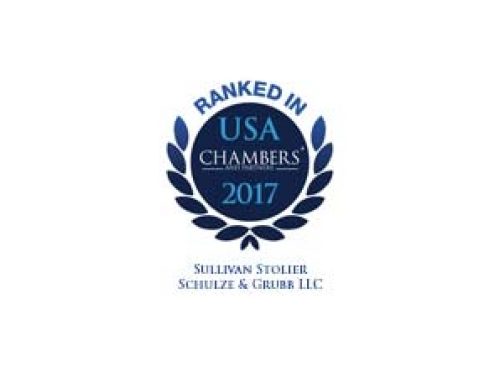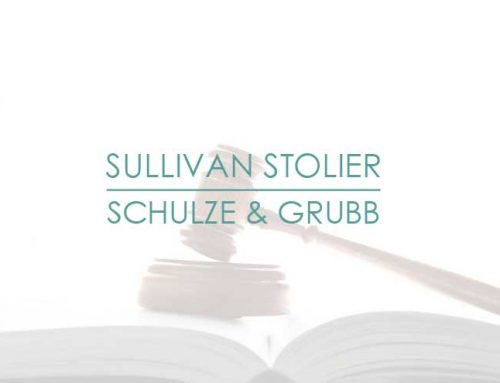Update: Living with Billeaudeau
By: Matthew K. Brown and Isabel Bonilla-Mathé
Hospitals across the state have been grappling with the ramifications of the Louisiana Supreme Court’s recent decision in Billeaudeau v. Opelousas Gen. Hosp. Auth., et al., 2016-0846 (La. 10/19/16) 218 So.3d 513. In that case, the Supreme Court upheld the decision that a claim for “negligent credentialing” of a physician by a hospital does not constitute medical malpractice subject to the terms of the Louisiana Medical Malpractice Act (MMA), La. R. S. §40:1231.1, et seq., thereby exposing hospitals to liability beyond the $500,000 damages cap imposed by the MMA. Billeaudeau represents a departure from previous jurisprudence on the matter, opening the door for increased hospital liability in the form of negligent credentialing claims.
Since the Supreme Court’s decision, subsequent Third Circuit Court of Appeal decisions on various motions filed in connection with Billeaudeau suggest continued uncertainty as to how courts will apply the newly-created negligent credentialing theory of liability within existing legal frameworks. The following provides a brief overview of four recent Third Circuit Court decisions rendered on negligent credentialing damages calculations and recovery matters litigated in Billeaudeau.
Louisiana Governmental Claims Act Caps for Political Subdivisions
On a motion for partial summary judgment filed by the defendant-hospital, Opelousas General Hospital Authority (OGH), the court held that the hospital was a “political subdivision” for purposes of the Louisiana Governmental Claims Act (LGCA), and thus, the section of that act concerning a $500,000 general damages cap limiting tort liability applied to the patient’s negligent credentialing claim. Billeaudeau, 2017-0735 (La. App. 3 Cir. 2/07/18), 2018 WL 738316. The court’s holding on the applicability of the LGCA to OGH, the public trust established to finance, construct, operate and manage St. Landry Parish Hospital Service District No. 2 d/b/a OGH, has significant implications for all hospital service districts, and their related public entities, across the state.
The LGCA limits tort liability for “political subdivisions” as defined under La. R.S. §13:5102(B)(1), by establishing a cap of $500,000 on general damages with no cap on medical and special damages. La. R.S. §13:5106. This is not as generous as the damages cap provided by the MMA, which prohibits judgments in excess of $500,000, exclusive only of medical expenses; nevertheless, the application of the LGCA general damages cap to negligent credentialing claims provides a significant benefit to public hospitals. Notably, for all other hospitals not considered “political subdivisions” under the LGCA, there is no limitation of damages from liability for a negligent credentialing claim.
Comparative Fault Allocation
On a motion for partial summary judgment filed by OGH, the court held that Louisiana’s comparative fault statute permits allocation of fault for multiple causes of action attributable to an individual party. Billeaudeau, 2017-0895 (La. App. 3 Cir. 4/18/18), 2018 WL 1835588. The apportionment of fault based on theory of liability has a considerable impact on the total amount recoverable by the plaintiff for a hospital’s alleged negligent acts. The court noted the significance of its determination in this context where the plaintiff had alleged both malpractice and negligent credentialing causes of action against the defendant hospital. By permitting a jury to allocate fault against OGH based on the two theories of liability, the damages recoverable would reflect the apportionment of fault for the medical malpractice theory of liability, which is subject to the MMA damages cap, and the negligent credentialing theory of liability, which is subject to a different damage cap under the LGCA or no cap at all, depending on whether the hospital is a private or public provider. The ruling is noteworthy, as hospitals involved in negligent credentialing litigation can now argue comparative fault apportionment as to theory of liability, in addition to fault allocation as between parties, to limit damages.
Interpretation of Insurance Policy Coverage
Unsurprisingly, the Supreme Court’s affirmation of the validity of the plaintiff’s negligent credentialing claim raised insurance coverage disputes for OGH’s two general liability insurers: National Union Fire Insurance Company of Pittsburg, PA (National Union) and Nautilus Insurance Company (Nautilus). The plaintiff sued both insurers under Louisiana’s Direct-Action Statute to recover for its negligent credentialing claim against OGH. In response, both National Union and Nautilus filed separate summary judgment and partial summary judgment motions, respectively, alleging that each insurer’s issued policy did not provide coverage for negligent credentialing claims. The Third Circuit Court of Appeal’s decision on each motion provides insight as to how insurance coverage provisions will be interpreted in the context of a negligent credentialing dispute.
The court granted Nautilus’s motion for partial summary judgment, finding that the issued insurance policy specifically excluded coverage for negligent credentialing claims. Billeaudeau, 2018-0893 (La. App. 3 Cir. 4/11/18), 2018 WL 1736224. In so holding, the court looked at the plain language of the policy
LHA Impact Lawbrief May 2018 Page 5
itself, which excluded from coverage what are considered traditional credentialing functions. Interestingly, the court further supported its interpretation by comparing the exclusion language with provisions in OGH’s medical staff bylaws relating to the organizational and procedural process for granting of medical staff privileges.
National Union’s motion for summary judgement also involved the interpretation of a policy exclusion. Billeaudeau, 2017-0894 (La. App. 3 Cir. 4/18/18), 2018 WL 1835510. National Union argued that the policy excluded coverage for damages arising from negligent credentialing where the policy excluded damages relating to “bodily injury,” but not emotional distress or mental anguish. On this issue, the court rendered partial summary judgment in favor of National Union, finding that the policy did exclude coverage for actual bodily injury damages, but did not exclude coverage for emotional distress and mental anguish damages raised in connection with the negligent credentialing claim.
Takeaways
There have been discussions about legislative amendments to overturn Billeaudeau by amending the MMA to clearly cover negligent credentialing claims, but as of now, there has been no progress with this effort, and whether such amendments will ever materialize remains to be seen. In the interim, we recommend that hospitals continue to monitor developing case law and adapt accordingly.
Specifically, in light of these recent holdings, hospitals may wish to review their insurance policies and to understand coverage limitations. It is important to note that the Patient Compensation Fund will not cover negligent credentialing claims. Hospitals would benefit from a review of their primary malpractice policy, E&O policy, and any excess policy in place, to determine whether negligent credentialing claims would be covered. In particular, hospitals that do not enjoy the damages cap provided by the LGCA may want insurance coverage options for negligent credentialing claims. The liability for a negligent credentialing act under such circumstances could be significant, especially considering the inherent uncertainty underlying the only other liability limitation available: a jury’s apportionment of comparative fault.
Matthew K. Brown practices at Sullivan Stolier Schulze & Grubb LLC, representing various businesses, including national companies, physician practices, hospitals and nonprofit organizations, in administrative and judicial proceedings, business negotiations, arbitrations, and regulatory matters. He can be reached by phone at 504-799-3823 or by email at mbrown@sullivanstolier.com.
Isabel Bonilla-Mathé practices at Sullivan Stolier Schulze & Grubb LLC, and is primarily involved in the firm’s health care regulatory and compliance practice as well as the firm’s litigation practice. She can be reached at 504-799-3824 or by email at ibonilla@sullivanstolier.com.






